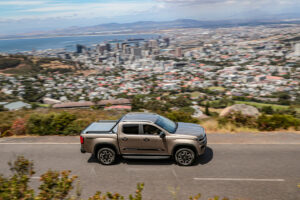
The Growing Popularity of Bakkie Canopies in South Africa
The Growing Popularity of Bakkie Canopies in South Africa Bakkies have seen a massive rise in popularity over the years. Their versatility, ruggedness, and ability

Lift clubs and Insurance – What’s the deal?
Lift clubs are more popular than ever thanks to the constantly increasing fuel prices. People are seeking ways to reduce their fuel consumption as much as possible, therefore lift clubs are a great idea for getting a lift to school or work. You may feel the effects of the fuel price, especially if you own a fuel-heavy bakkie or larger car. It is important to properly read your insurance policy so that you are aware of what is allowed and not allowed when it comes to lift clubs.
It is common for insurance policies to have limitations that could potentially lead to the repudiation of a claim if you were not complying with the contractual agreement. If you plan on making use of lift clubs, then you should take note.
Usually there is one designated driver and he or she is reimbursed for the cost of the trip by the passengers. However, if you are making a profit from your lift club then this is considered as a commercial transaction. This may mean that your insurance policy could change to a business policy. This would increase your premiums, or they will not cover you if you were to be in an accident and they had not been informed of the arrangements.
The least risky option is when there are alternating drivers and there is no money involved. This is still something that insurers should be informed of, bearing in mind that your policy may only cover the designated driver. It is also important to remember that personal policies are not liable for fare-paying passengers. Alternatively, insurers may even be open to reducing your premium if they know you are involved with a lift club as this way you would be driving your bakkie less. If you allow others to drive your car, you need to ensure that you list them with your insurer as secondary drivers, if they are driving at the time of an accident.
If you are a business owner and allow your employees to use a company vehicle for personal travel, you should also let your insurer know. Your insurer may have specific requirements such as where the vehicles are kept during the night, so it is important to inform your insurer of your agreed arrangements.
In both above-mentioned cases, you may need to possess PrDP licensing if you are making a profit from your passengers. Before agreeing to a lift club, you should read your agreement with your insurer to determine what you are or are not allowed to do. If changes are made with regards to the usage of your car, then you need to inform your insurer as this will directly affect your insurance premiums. If you do not inform your insurer, you may face much bigger losses than just a high premium.
Lift clubs and Insurance – What’s the deal?

The Growing Popularity of Bakkie Canopies in South Africa Bakkies have seen a massive rise in popularity over the years. Their versatility, ruggedness, and ability

The Cultural Significance of Bakkies in South Africa Bakkies are a fundamental part of South African culture. These versatile vehicles hold a unique place in
We take your privacy very seriously and in accordance with the POPI Act, please take a minute to review our Privacy Policy. By continuing to use our site, you agree to our Cookie Policy.